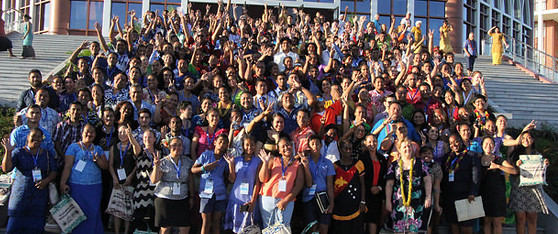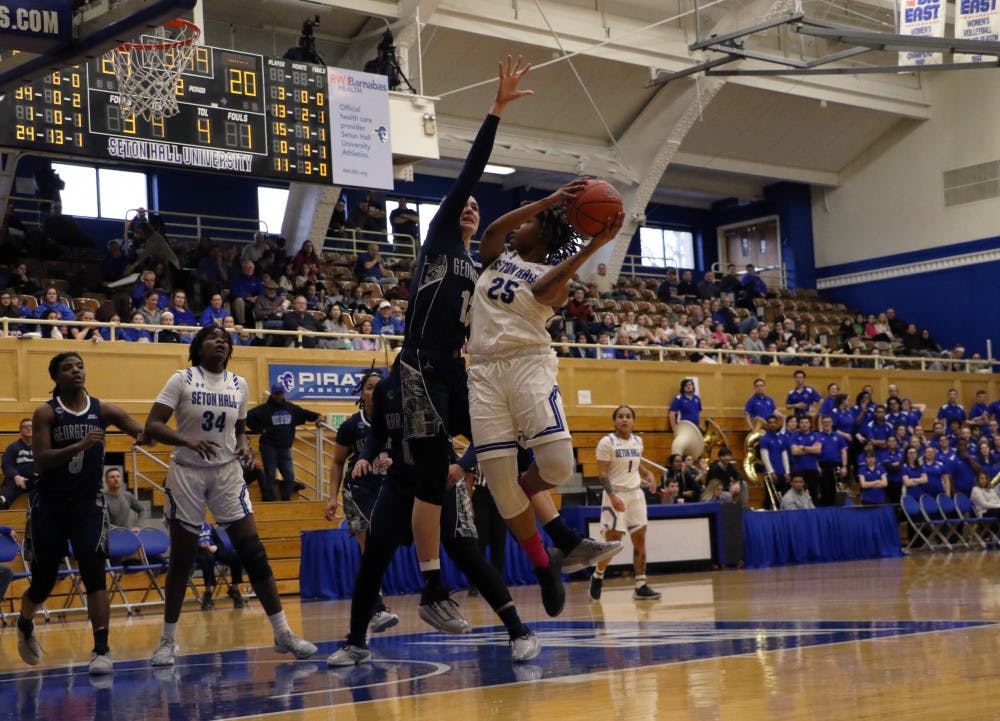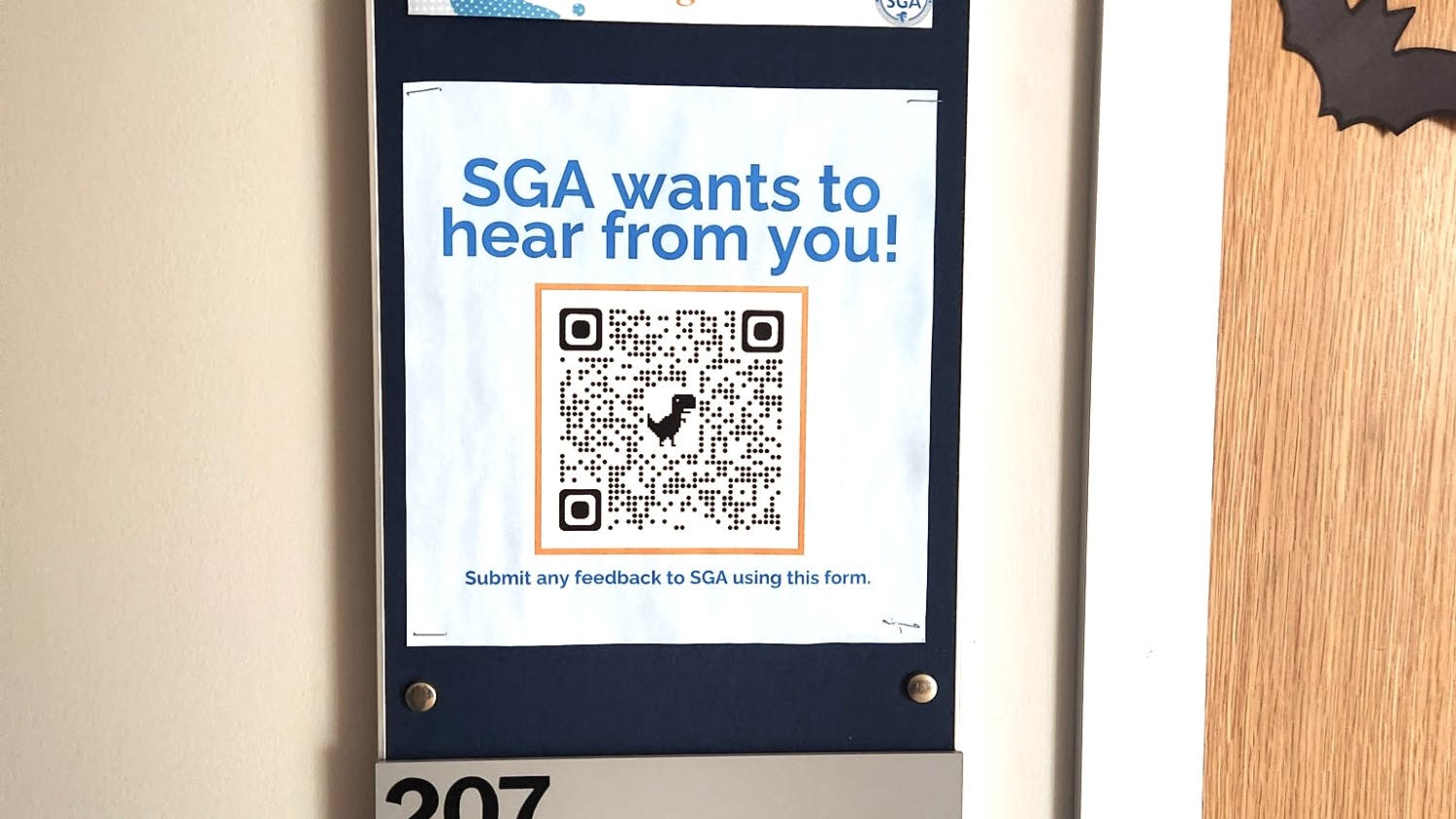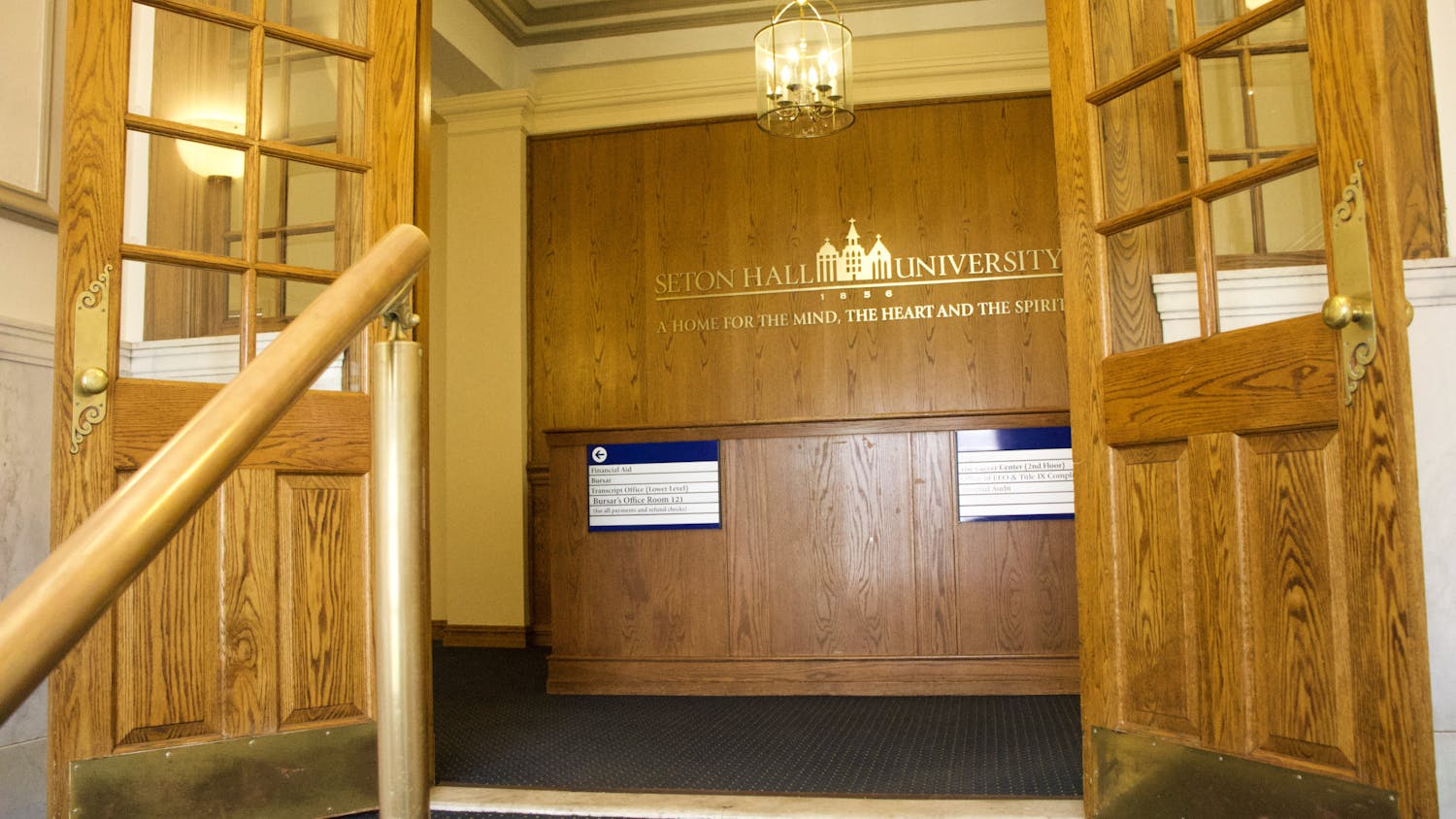 The United Nations has turned to the youth of the world for answers.
On Feb. 1 and 2, the United Nations hosted the Economic and Social Council (ECOSOC) Youth Forum at their headquarters in New York City where students from Seton Hall joined delegates and other global leaders to discuss how the United Nations’ Sustainable Development Goals could be accomplished.
The 17 Sustainable Development Goals that--ideally--should be achieved by the year 2030 were voted on by the UN on September 25, 2015. These goals are highly ambitious. For instance, Goal One simply states: “No Poverty”.
Since these goals are so idealistic, the United Nations was presented with a unique challenge. The global community would have to create solutions to accomplish these Sustainable Goals.
“This is the second year that we’ve sent students to ECOSOC meetings--last year we were invited twice to attend these,” Martin Edwards, associate professor and director of the Center for United Nations and Global Governance Studies at SHU’s School of Diplomacy said in an email.
The school often sends students to conferences held on UN grounds. Just this past summer, as an incoming freshman, Seton Hall gave me the opportunity to attend the International Young Leaders Assembly held at the UN in August 2015.
The ECOSOC Conference earlier this week was a combination of breakout sessions and public speakers presenting their works. During the breakout sessions, students, adult leaders, and delegates worked together to address specific situations and come up with a way to deal with the problem.
While there, I attended the sessions concerning gender equality and empowerment and the forum on Latin American affairs. In each session, delegates and representatives from relevant nations or individuals who are experts in their field spoke, then worked with us in small groups to address the issue at hand.
Students then specifically addressed how to accomplish equality for women across the globe.
A number of students in attendance also had the opportunity to live tweet the event. One of these students was graduate diplomacy student Emily Fox.
“There was a lot of debate about the scope of the forum. People were asking a lot of questions about our purpose. (These questions included), Were we there to offer very specific solutions or to generally identify the issues important to us? Should we be approaching these issues from a local level or an international level?,” Fox said in an email.
These questions might seem straightforward--after all, being in attendance of an event hosted by the UN, may make one think they have to address topics from an international standpoint.
However, for these goals to be accomplished, they need to first be addressed at the grassroots level. Accomplishers must start small in order to make enormous changes that will affect the whole globe.
Fox said that these questions and this approach “really captures the complex nature of the Sustainable Goals. There are so many different aspects and problems to think about, but there are also so many opportunities, too.”
Since the goal is to accomplish the Goals by 2030, the delegates recognized that some, if not most, of them will no longer be working in the UN or in other global positions by that time.
Students were called upon to share their fresh perspectives on action plans to get these goals checked off.
The School of International Relations and Diplomacy at Seton hall has maintained its relationship with the UN ever since the school’s first class of students almost 20 years ago in 1998.
“The school was founded in partnership with UNA-USA (United Nations Association of the United States of America) and the UN foundation,” Edwards said.
Megan O'Malley can be reached at megan.omalley@student.shu.edu
The United Nations has turned to the youth of the world for answers.
On Feb. 1 and 2, the United Nations hosted the Economic and Social Council (ECOSOC) Youth Forum at their headquarters in New York City where students from Seton Hall joined delegates and other global leaders to discuss how the United Nations’ Sustainable Development Goals could be accomplished.
The 17 Sustainable Development Goals that--ideally--should be achieved by the year 2030 were voted on by the UN on September 25, 2015. These goals are highly ambitious. For instance, Goal One simply states: “No Poverty”.
Since these goals are so idealistic, the United Nations was presented with a unique challenge. The global community would have to create solutions to accomplish these Sustainable Goals.
“This is the second year that we’ve sent students to ECOSOC meetings--last year we were invited twice to attend these,” Martin Edwards, associate professor and director of the Center for United Nations and Global Governance Studies at SHU’s School of Diplomacy said in an email.
The school often sends students to conferences held on UN grounds. Just this past summer, as an incoming freshman, Seton Hall gave me the opportunity to attend the International Young Leaders Assembly held at the UN in August 2015.
The ECOSOC Conference earlier this week was a combination of breakout sessions and public speakers presenting their works. During the breakout sessions, students, adult leaders, and delegates worked together to address specific situations and come up with a way to deal with the problem.
While there, I attended the sessions concerning gender equality and empowerment and the forum on Latin American affairs. In each session, delegates and representatives from relevant nations or individuals who are experts in their field spoke, then worked with us in small groups to address the issue at hand.
Students then specifically addressed how to accomplish equality for women across the globe.
A number of students in attendance also had the opportunity to live tweet the event. One of these students was graduate diplomacy student Emily Fox.
“There was a lot of debate about the scope of the forum. People were asking a lot of questions about our purpose. (These questions included), Were we there to offer very specific solutions or to generally identify the issues important to us? Should we be approaching these issues from a local level or an international level?,” Fox said in an email.
These questions might seem straightforward--after all, being in attendance of an event hosted by the UN, may make one think they have to address topics from an international standpoint.
However, for these goals to be accomplished, they need to first be addressed at the grassroots level. Accomplishers must start small in order to make enormous changes that will affect the whole globe.
Fox said that these questions and this approach “really captures the complex nature of the Sustainable Goals. There are so many different aspects and problems to think about, but there are also so many opportunities, too.”
Since the goal is to accomplish the Goals by 2030, the delegates recognized that some, if not most, of them will no longer be working in the UN or in other global positions by that time.
Students were called upon to share their fresh perspectives on action plans to get these goals checked off.
The School of International Relations and Diplomacy at Seton hall has maintained its relationship with the UN ever since the school’s first class of students almost 20 years ago in 1998.
“The school was founded in partnership with UNA-USA (United Nations Association of the United States of America) and the UN foundation,” Edwards said.
Megan O'Malley can be reached at megan.omalley@student.shu.edu





